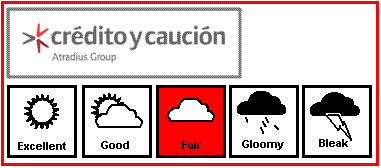| The economic situation has improved considerably since our last Market Monitor analysis of the Czech Republic in May 2010. GDP increased 2.4% year-on-year and 3.8% on the previous quarter in Q2 of 2010. The Czech National Bank [CNB] has revised its 2010 growth expectation upwards to 2.3%. According to the Czech Statistical Office, between January and September 2010 exports and imports increased 16.2% and 18.7% year-on-year, respectively, after a sharp decline in 2009. Industrial production rose 10.2% year-on-year in Q3 of 2010, due mainly to a surge in production of motor vehicles and trailers, metal products, machinery and equipment. Unemployment decreased 0.2% year-on-year to 7.2% in Q3. 
In October 2010 sentiment for the domestic economy decreased slightly on the previous month, with a 1.2% drop in consumer confidence. Consumers expect a less benign economy and a deterioration of their own financial situation in the next 12 months. The business confidence indicator levelled off in October, with confidence in industry and construction increasing slightly, while decreasing somewhat in trade and selected services. However, compared to its low point in October 2009, the overall confidence indicator is up 14.5 points. Insolvencies will continue to increase Generally, in the last few years the number of at risk companies has increased rapidly. After an 82% year-on-year rise in corporate insolvencies last year, 2010 will again be critical, as company failures continue to rise despite the recovery, because the recession had such a severe impact on the equity base of many companies directly dependent on the economic cycle. We assess agriculture, manufacturing, transport and construction to be the sectors most at risk. In particular, construction companies in the public building sector [infrastructure] will suffer from forthcoming public spending cuts. Overall, construction output decreased 4.8% year-on-year in Q3 of 2010, with both new orders and building permits down. Consequently, business confidence in the construction sector is far lower than in other sectors. In contrast, Crédito y Caución assesses banks and energy to be the most secure sectors. Czech banks benefited from strict regulation which softened the effects of the credit crisis, while the strength of the energy sector stems from its status as an oligopoly. One exception in this sector is that of solar power stations, which have been subject to the imposition of a special tax. Other promising sectors are health service, pharmaceuticals and education. Economic growth will slow down next year, due to widespread austerity measures aimed at reducing the budget deficit. The Czech Central bank has recently revised its real GDP growth forecast downwards to 1.2% from 1.8%. |
